“Don’t Blame It on the Autism!” – Why This Statement Is Inaccurate and Harmful to Autistics
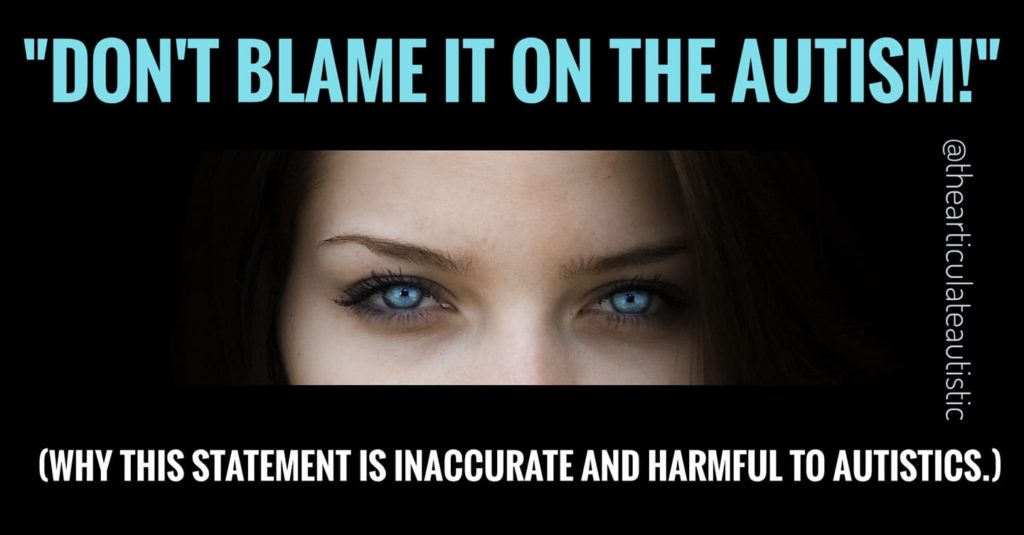
“Don’t blame it on the autism!”
Oh, just writing that makes me cringe! There are so many things wrong with that statement!
First off, “the autism” implies that being autistic is some type of mental health condition, like it’s an add-on feature in an otherwise neurotypical person.
No. Being autistic is a neurotype. It’s the way the brain is wired. Just like being neurotypical is a neurotype. Again, it’s the way the brain is wired during development.
Now that we’ve gotten that part out of the way, let’s take a look at the word “blame”.
I have NEVER understood this or any other variation of it such as, “You’re using your disability as an excuse.”
No. It’s not an excuse, it’s an explanation.
The reason I don’t understand this mentality is that, in most cases, people would not say the same thing with a physical-presenting disability or difference.
For example, if somebody who did not have the use of their legs and used a wheelchair to get around, most people wouldn’t look at them and say, “You’re using your wheelchair as an excuse to not climb that flight of stairs over there.”
(What?)
If someone is blind, people don’t usually say to them, “You’re just using the fact that you can’t see to get out of viewing my art show tonight.”
(Excuse me?)
If someone is deaf or hard-of-hearing, most people wouldn’t say, “You could listen to this new CD if you REALLY wanted to, you’re just not trying hard enough!”
(Huh?)
You see what I mean? It sounds so utterly ridiculous, yet people on the spectrum hear this and statements similar to it quite frequently!
The reason it’s harmful and emotionally damaging is because this statement, 1, Completely invalidates the other person’s experience, 2, Implies that there’s something they can do to change the fundamental nature of their being, and 3, Makes them feel GUILTY about not being able to change the fundamental nature of their being. (Which is just horrible!)
(Article continues below.)
The best way to improve communication with your autistic loved one is to understand how your autistic loved one’s mind works! Intentions, motivations, and personal expressions (facial expressions or lack thereof, body language, etc.), are often quite different in autistic people than they are in neurotypical people.
Experience a better understanding of your autistic loved one by reading books about life from an autistic perspective as well as stories that feature autistic characters. You’ll have so many “Ah ha!” moments and start seeing your autistic loved one in a different light (and you’ll have a better understanding of their behaviors, which you may have been misinterpreting up until now).
Books I recommend for a better understanding of your autistic loved one:
Not only that, but when someone on the spectrum shares that they are autistic and explains how their brain works, they are trying to form a connection with you, and you are shutting them down with the emotional equivalent of ice water to the face.
If someone tells you they struggle with something, believe them. If you wouldn’t question a blind person about the validity of their blindness, then why would you question the validity of an autistic person’s experience?
There are work-arounds for just about everything for people on the spectrum. It’s not an excuse, it’s an explanation, and that explanation can be a great opportunity to connect and discover these work-arounds.
Please consider this the next time you get frustrated with the neurodivergent person in your life.
Oh, and by the way, if you get frustrated because the autistic person in your life seems to constantly be reminding you that they are autistic, and that’s what sets you off, think about it this way: The reason a person who uses a wheelchair only has to bring it up once is because you can SEE the chair.
We won’t continue mentioning it once you start to see it.
Follow me on Instagram.
Want downloadable, PDF-format copies of these blog posts to print and use with your loved ones or small class? Click here to become a Patreon supporter!

Want to learn more about how your autistic loved one thinks, feels, and processes the world? Check out the books linked below!
The more you understand about the autistic neurotype, the less likely you are to experience chronic misunderstandings among each other.
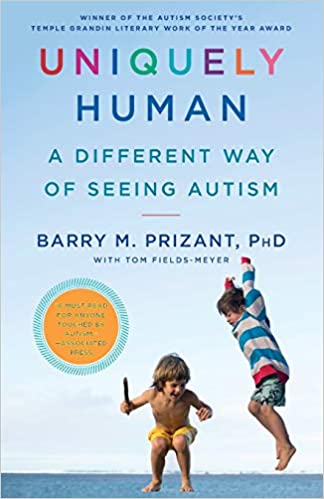
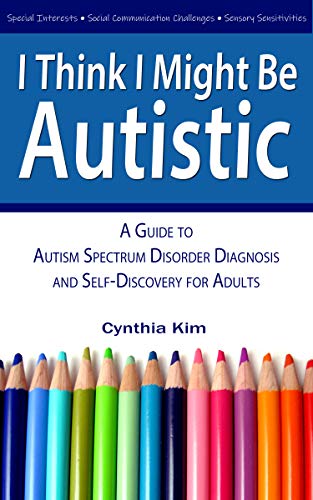

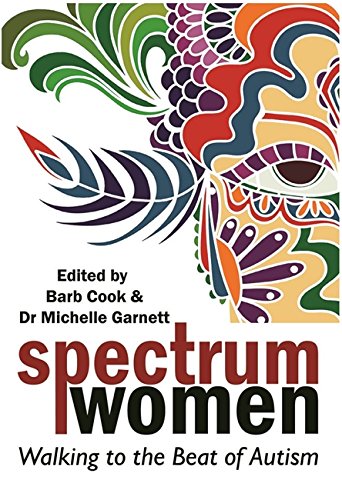
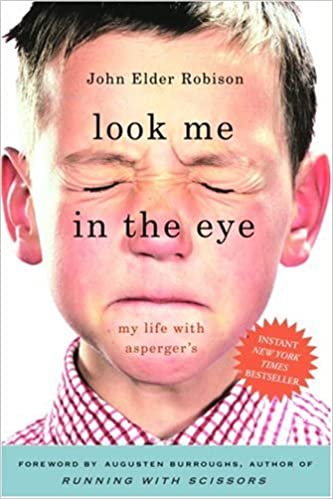





Well said!
Thank you!
Yes! Yes! Yes! I told my wife that her mother is being a little sensitive of holding a grudge of something I said over a week ago and have apologized for.
My wife says that is just your mind blindness from your Autism. Totally dismissing my point and blaming my autism for thinking my mother in law is being too sensitive.